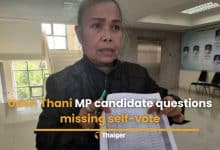Thailand amplifies universal healthcare scheme to aid impoverished urbanites

Faced with the challenge of access to healthcare for underprivileged urban dwellers, Thailand’s Ministry of Public Health announced its commitment to augment the universal healthcare scheme. The initiative, discussed at an academic conference in Udon Thani yesterday, aims to improve access and services for all, with particular attention to the impoverished populace in major cities.
Dr Opas Kankawinpong, the ministry’s permanent secretary, noted that while the universal healthcare scheme has been in place for over 21 years, there is an imperative need for enhancement. This is vital to adapt to the shifting lifestyles of the populace.
Historically, the ministry’s definition of vulnerable or fragile groups encompassed those located in remote areas, due to their lack of basic healthcare access. However, in the current scenario, this demographic has expanded to include economically challenged individuals residing in urban areas including Bangkok, Pattaya, Chiang Mai, and Nakhon Ratchasima. These individuals, too, grapple with accessing medical treatments, a concern that the ministry is eager to address.
Opas said…
“How to make sure the fragile groups can get access to medical treatments under the 30-baht healthcare scheme without any limitation is our task under the 30-baht healthcare scheme plus, which we will launch shortly in line with the new minister’s policy.”
The upcoming task involves addressing several issues including the shortage of medical staff and redefining the job descriptions of medical personnel. The ministry is grappling with a dearth of medical staff due to the high resignation rate among young doctors from state-owned hospitals. This exodus is spurred by the work overload, a significant part of which is attributed to the universal healthcare scheme that draws many patients to state-run hospitals.
The revamped 30-baht universal healthcare plus concept will shift its focus to preventive healthcare, health promotion, rehabilitation, and the incorporation of technology, including telemedicine, to reduce the influx of outpatients at state hospitals.
The ministry will also introduce a policy that will enable people to use their ID card to access any hospital healthcare service, rather than being restricted to the hospital where they originally registered. This initiative is part of the new government’s drive to eliminate limitations to universal healthcare.
To implement these changes, the ministry will engage in dialogue with the National Health Security Office, responsible for overseeing the universal healthcare scheme’s budget. Subsequently, a suitable allocation for hospitals nationwide will be decided, reported Bangkok Post.
Latest Thailand News
Follow The Thaiger on Google News:


























